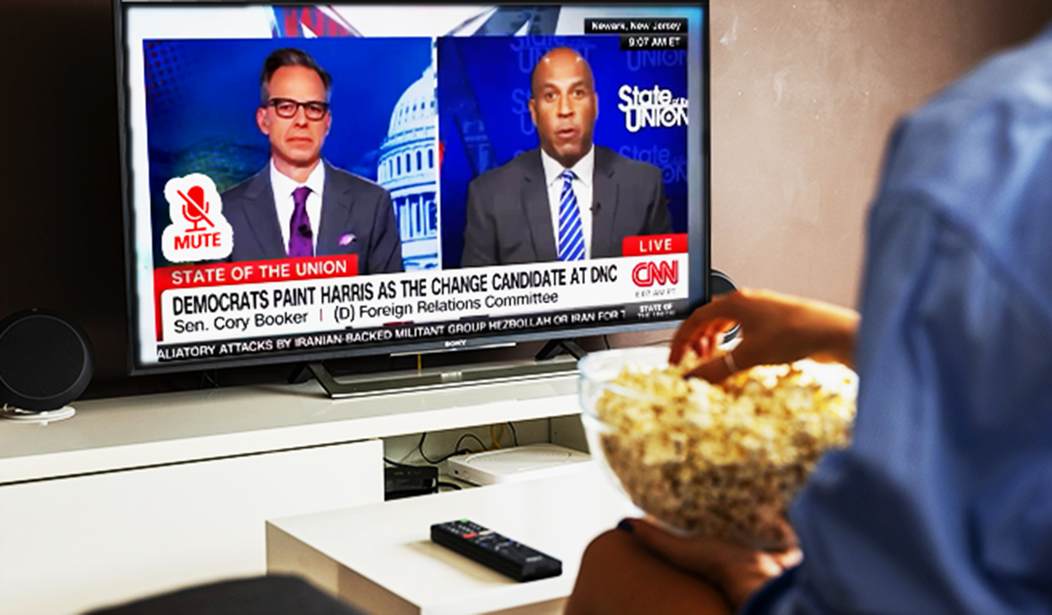It’s funny how certain narratives get etched into our brains like tribal tattoos. Take race and ethnicity, for example. We’re so predisposed to viewing differences through the prism of color that we lose sight of how unique our perspective is. Until relatively recently — I’m talking over just the past 400 years or so — it never really occurred to humans to divide ourselves in accordance to a color chart. Historically speaking, it’s a radically new phenomenon.
Now, this doesn’t mean that we all used to live in harmony thousands of years ago, of course; our base human nature hasn’t changed in many millenniums. Our forefathers were certainly cognitive of different skin colors, but the concept of self-identifying with everyone who happens to share your shade of pigment never occurred to them. For our ancestors, you were either one of them, or you were the “other.”
Skin color mattered about as much as hair color. It was a meaningless distinction.
Today’s political discourse is similar to race and ethnicity in the sense that the modern narrative has been drilled into our psyche for so long that it’s easy to fall into the trap of viewing everything as a left-versus-right conflict. After all, that’s been our frame of reference since the days of our grandparents: You name the issue, and conservatives will stand on one side, liberals on the other.
Within our living memories, this is how it’s always been.
But looking at the world this way is limiting. Many insights, truths, and relevant data points fall outside our current left-right divide. And besides, at this point, you already know the major arguments from liberals and conservatives. Before a talk show host like, say, a Sean Hannity or a Rachel Maddow opens their mouth, you can (mostly) anticipate what they’re going to say.
That’s no fun! (In fact, it gets kind of boring.)
This is why I’d like to introduce you to Peter Zeihan, an energy, demographics, and security expert. His best-selling book, “The End of the World Is Just the Beginning: Mapping the Collapse of Globalization,” has landed him on some of the top podcasts: Joe Rogan, Jack Carr, Sam Harris, Dan Crenshaw, Adam Carolla, etc. His profile is rapidly rising.
He’s not always right. Often, his conclusions are radically at odds with the popular consensus. But he’s still worth listening to because his approach to problem-solving usually falls outside of the standard left-right paradigm. He’s smart, witty, and generally well-researched, and some of his projections might surprise you:
- He’s convinced that China is on the verge of collapse and within 10 years will no longer be a functioning country.
- The age of globalization is coming to an end, which will lead to new alliances and conflicts.
- Germany is a few years away from no longer having a modern economy. Zeihan also predicts dire political fallout in Europe.
- A decade before Russia invaded Ukraine, he argued that a Russia-Ukraine war was always inevitable and had to happen when it did. More disconcertingly, he’s also insisted that Russia won’t stop with Ukraine, and a war with NATO, possibly nuclear, is now on the horizon.
Usually, he bases his predictions on demographics and food/energy vulnerabilities. It’s a “demographics is destiny” philosophy. The biggest benefit of listening to Zeihan’s theories is that they’ll challenge your perspective; he’s an entertaining communicator with an offbeat point of view, and there’s real value in exposing yourself to outside voices.
His biggest weakness is that he’s way, WAY too self-assured — especially about topics that are simply unknowable. Western academics lack the resources to know whether or not China is on the verge of a systemic collapse, so when Zeihan acts like it’s a done deal, he’s being disingenuous.
And it’s unwise to put our faith in disingenuous thinkers.
Furthermore, Zeihan makes these predictions without factoring in Black Swan Events, and I know why. By definition, Black Swan Events are anomalous surprises. They defy expectations. If you’re a prognosticator, they only get in the way of your grandiose, self-assured predictions.
But think about all the Black Swan Events that dramatically altered world history: The assassination of Archduke Ferdinand. Hiroshima and Nagasaki. New scientific discoveries. 9/11. COVID. None of these were foreseeable by an outside pundit, but all of them transformed our planet and rewrote our history books.
The world doesn’t move in a steady, incremental path. There are painful ebbs, fantastic flows, and plenty of one-off anomalies. This reality is obvious to anyone who’s been paying attention, but for Zeihan, it’s his blind spot.
It’s a shame. He’s already a compelling pundit. But with an ounce of humility, he’d be a great one.
Regardless, if you’re seeking a novel take on current events, give Peter a whirl. He’s a mixed bag (aren’t we all?), but the bag is mostly filled with interesting, intriguing content.
GRADE: A-










